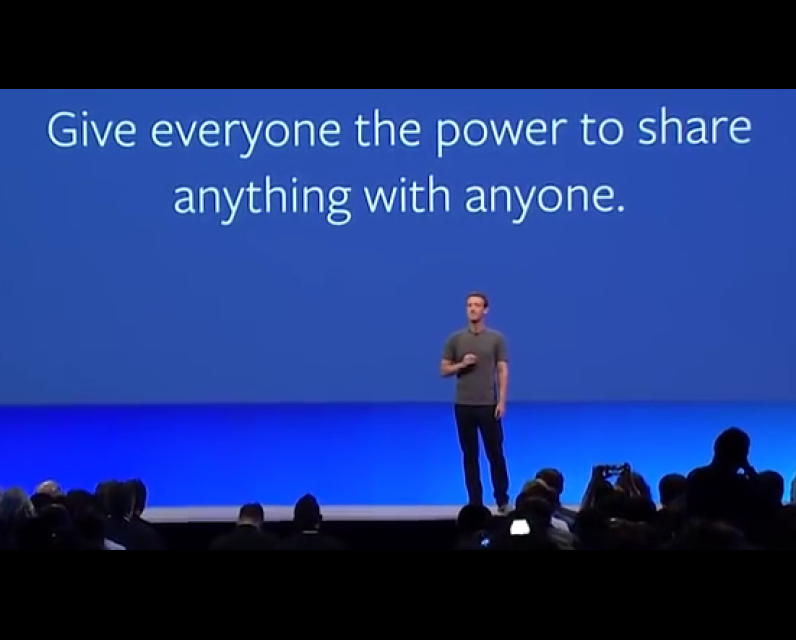Unpublished Opinions
Wayne is a political affairs columnist, HR & retail consultant and former political aide at Canada’s House of Commons. His work has appeared in The Hill Times, Taipei Times, The International News Lens, and AmCham TOPICS magazine. You may contact Wayne via LinkedIn or at waynekpmail@gmail.com
The concerning e-volution of Canadian elections

Our online activity is accessible, profiled, and used to influence democratic elections. What are we doing about it?
Twenty-first century life has devolved into a predicted dystopia as “the technical advance which made it possible to receive and transmit simultaneously on the same instrument, private life came to an end,” to quote George Orwell’s 1984.
Online visits to Facebook, Google, Microsoft, and most every other company or service facilitates data collection being used to influence the democratic process.
Using analytic algorithms or “data mining” stored Internet activity, a.k.a. “Big Data,” to interact with us, individually and demographically, is an underhanded practice used to affect democratic elections since at least 2015.
Motherboard magazine said of Big Data: “everything we do, both on and offline, leaves digital traces. Every movement we make when our mobile phone is in our pocket, every ‘like’ is stored. Especially every (Facebook) ‘like.’ ”
The Guardian delved into this recent campaign practice to reveal: “AggregateIQ, an obscure web analytics company based in an office above a shop in Victoria, British Columbia,” as an enabler and “contractor” to Cambridge Analytica.
Trump’s White House chief strategist and former vice-president of Cambridge Analytica, Steve Bannon, “helped to bring about (Brexit) the biggest constitutional change to Britain in a century.”
Furthermore, as relayed by Newsweek: “Cambridge Analytica bragged about the role it played in helping Trump win the election. Jared Kushner, Trump’s son-in-law and adviser, explained to Forbesshortly after the election how data mining and microtargeting won the election for Trump.”
Cybersecurity expert Simon Moores asserted: “Behavioural modelling involving big-data analytics has arguably passed an inflection point. Thanks to the growth of predictive analytics, algorithms, and big data-mining businesses, you can now look forward to a future that’s made up of equal parts Orwell, Kafka, and Huxley.”
As in all past great leaps in technology, regulation lagged as the carnage on railways and roadwaysupon their introduction attested. Once again we find ourselves trailing technological advancement and playing legislative catchup to abate electoral abuse and folly, this time on information’s superhighway.
A data analytics professional consulted for this article depicted: “How much more likely are you to believe targeted, paid-for, ad posts enabled by data analytic companies conforming to your world view and click ‘like,’ or repost and comment, without thinking who actually posted the story? When someone sees the second-generation share, with a comment, then what?”
The then what is fake posts that take on lives of their own when shared with “friend” recommendations, bestowing credibility only to perilously betray trustworthy communication.
When Democratic Institutions Minister Karina Gould presented the report Cyber Threats to Canada’s Democratic Process, its summary said: “The rapid growth of social media, along with the decline in longstanding authoritative sources of information, makes it easier for adversaries to use cyber capabilities and other methods to inject disinformation and propaganda into the media and influence voters.”
Subsequently CNN reported: “The FBI monitored social media on election day to track a suspected Russian disinformation campaign utilizing ‘fake news.’ Twitter and Facebook were the feeding grounds for viral ‘news’ stories floating conspiracies and hoaxes.”
Accentuating the challenge of Gould’s task is Facebook’s targeted advertising campaign and recent declaration: “Details such as the frequency of ads, how much money was spent on them, where they were seen, what the messages were and how many people were reached would remain confidential under the company’s corporate policy.”
With big money and Big Data, any party from anywhere in the world can influence our thinking and sway our decisions. This trampling on electoral regulations, which Canadians of all political stripes have considerately adopted to facilitate fair and equitable elections, must be thwarted.
An informed electorate is democracy’s foundation, but when our direct line to the fifth estate is usurped and Orwell’s “alternative facts” are perceived as real, the capacity to make informed choices at the ballot box is diminished.
Although Orwell comforted: “It’s the one thing they can’t do. … They can’t make you believe it. They can’t get inside you.” It now appears they can.
We mustn’t wait to be left wondering after the next election what the hell just happened, as they did in the U.K. and U.S.A.
Concerned Canadians, wish Minister Gould Godspeed with e-volutional legislation to remedy electoral devolution.
Wayne Pajunen is a consultant, political and social affairs columnist, and former political aide at Canada’s House of Commons.



Comments
Be the first to comment